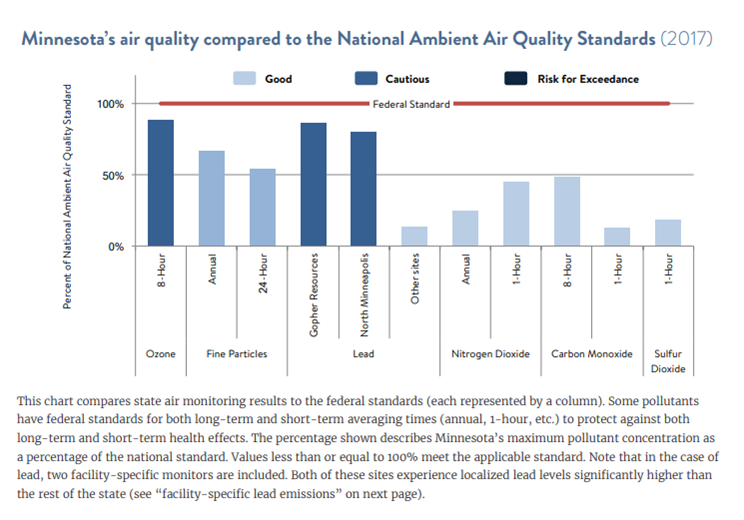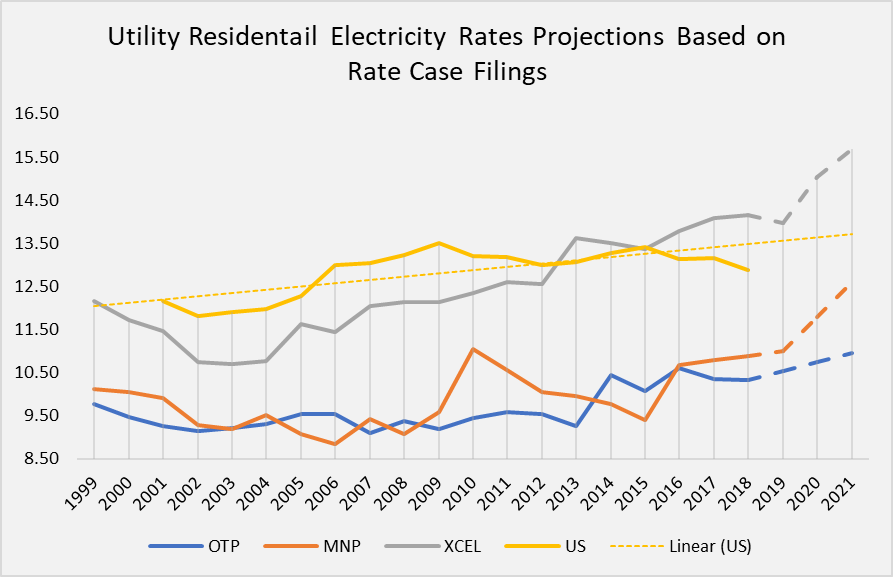Are Liberal Minnesota Energy Policies Making Pollution Worse?
Improving Minnesota’s air quality is often used as justification for mandating wind and solar on our electric grid, and now groups like Fresh Energy want to ban the use of natural gas for heating new buildings. However, there is a very persuasive argument to be made that these policies will actually result in making Minnesota’s air quality worse.
First of all, it’s important to note that Minnesota’s air is already very clean. The graph below is from the Minnesota Pollution Control Agency (MPCA), and it shows Minnesota meets federal air quality standards for ozone, fine particles, lead, nitrogen dioxide, carbon monoxide, and sulfur dioxide. 
Furthermore, a plurality of these already-low emissions come from neighborhood sources, such as dry cleaners, home heating, backyard fires, etc. Just 21 percent come from all industrial facilities in the state, which is very impressive.

However, MPCA notes that emissions from wood-burning for home heating are rising, which as we have noted, is one of the largest sources of emissions in Minnesota.
According to MPCA, “Survey data indicates residential wood burning, unlike other air pollution sources, is increasing as more wood is being burned for home heating and in residential backyard fire pits. Residential wood burning is a sizable contributor to fine-particle emissions and can aggravate health conditions such as asthma.
If reducing emissions to the lowest-amount possible is a priority for MPCA, the trend toward increasing use of wood for home heating should be worrisome. However, the agency should consider that it is liberal energy and environmental policies that will potentially be to blame.
Increasing electricity prices, driven by mandates to use renewable energy in Minnesota could incentivize more people to use or install wood-burning stoves in their homes to save money. Xcel Energy’s proposed rate increases will cost the average household an additional $200 per year, and this rate increase will pale in comparison to future rate increases required to pay for their capital spending on wind turbines and transmission lines.

Furthermore, taxes on carbon dioxide emissions from heating oil and natural gas- or banning these fuels entirely- will likely have similar implications in rural areas where woodburning is more common. This trend was observed in Greece, where air quality suffered as the result of the populace burning more wood to avoid additional taxes on heating fuel.
Bureaucratic mandates that make electricity more expensive will have tangible, negative impacts for air quality, and these impacts will occur the most in areas of the state that are the most sensitive to changes in the price of heating fuels. This is why renewable energy mandates and carbon taxes are inherently regressive, they make energy more expensive for those who can least afford the increase in costs.